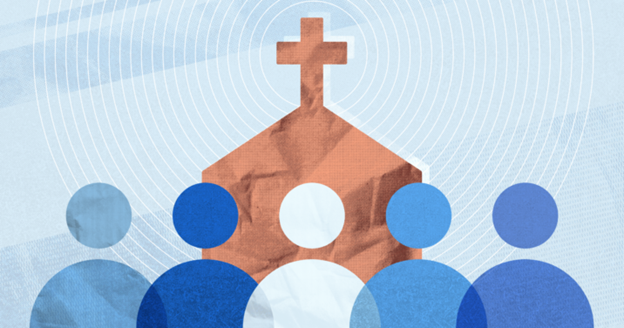
The Church
What Some Call Organized Religion
I get frustrated when people criticize the failures of the church, when we know that it is made up of people who are fallible. When we see buildings, we tend to see them as some kind of business. The church is more basic than a building. The church is the community believers. We share our faith, basic concerns, hopes, worries, and support. Sunday worship is the means to testify publicly, but it is not the totality of the church. We have many other activities, missions, and functions.
As an organization, it is easy to get tied up with egos, selfishness, agendas, etc. Beautiful stained-glass windows are inspirational, and music is an important aspect of the life of the church. Educating our children is an important function of the church, and it should not be passed off onto the public schools. They already are over-burdened.
We all have attitudes, mind-sets, and beliefs, both positive and negative. Cynics say that we can’t prove the existence of a God, and that’s true. But we can show the connection to God in people’s lives. We have lots of other “tribes” or names of how people collect into groups of shared interests. Sport teams and their supporters probably are the most popular (and loudest) groups in our society. All that exergy is exciting. It all depends on our values and priorities. Do we serve and support others, or do we only look for what others can do for us?
I do not defend all actions, policies and work of all churches or of the folks in those churches. I don’t condemn them either. What is the purpose of the church (as a general term for all religions)? It is to share the good life, full of purpose and joy, and meaning beyond the daily routines of our lives. We can find purpose in our work, find inspiration in our hobbies and interests, and fulfillment in our families. But they work best in the context of our religion.
Religion is as old as humanity and has developed in many different forms as there are cultures and societies. It is a search for meaning beyond ourselves, and we have many labels for that. We get into trouble when we try to classify people by stereotypes and call them names.
The Catholic Church has a system of how people become “saints,” but most other churches do not. It is perhaps the most hierarchal church. OK, so let’s spell it out. We usually are talking about Christianity; we can use the model in synagogues, mosques, and temples even if they have different functions.
Perhaps the most controversy occurs when religion and politics get mixed. The church must be engaged in public policies and how they affect people’s life but not in the governing function. Particularly when imposing our religious values on others. We have freedom from religion as well as freedom of religion in this country. We have the freedom not to go to church or to support any religion. We do not have a formal state religion.
Even if you are not a part of any religion, you have a set of beliefs and values.